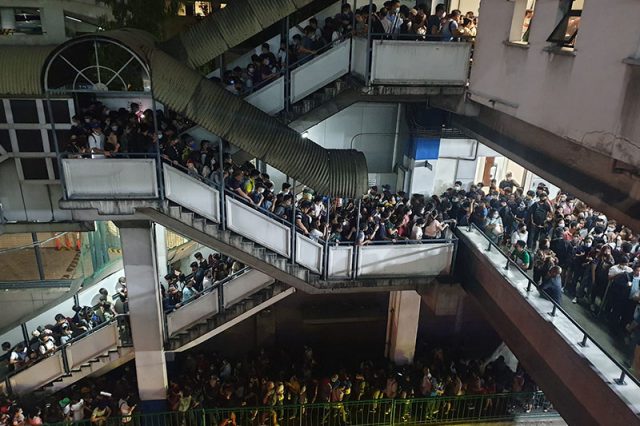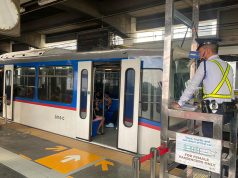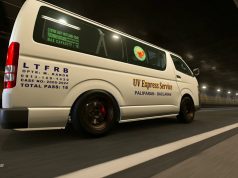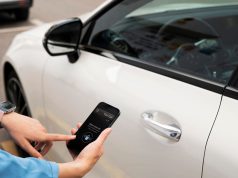
Research about commuting and its effect on one’s well-being and mental health earned the attention of Filipino commuters, who concurred with the findings.
Academic and ultradistance cyclist Ian Walker on Tuesday shared a screengrab of a research titled “Systematic review of the association between commuting, subjective wellbeing and mental health” published on the Travel Behaviour and Society Journal.
“Just spotted this paper. The quality of your commute might matter more than you think,” he wrote on the X (formerly Twitter) platform on July 2.
His post has reached 4,000 likes and 1,200 reposts so far, with some Filipinos sharing it and expressing their comments on the quotes.
Just spotted this paper. The quality of your commute might matter more than you think pic.twitter.com/Luzr1sMoL9
— Prof. Ian Walker (@ianwalker) July 2, 2024
The paper said it is the first systematic review of the interplay among commuting, subjective well-being (SWB), and mental health (MH).
“Commute characteristics affect experiential aspects of SWB and MH,” one of the highlights of the paper said.
“Commuting has spill-over effects on life and work,” it added.
“The accumulation of commute experiences may influence overall wellbeing and MH,” it further said.
In the reposts, a Pinoy shared that shifting to remote work drastically improved his mental health after being a Metro Manila commuter.
“My mental wellbeing went through the roof once I started permanently working from home and could now afford [GrabCar]. I didn’t even realize how miserable I was until then!!! Metro Manila public commute destroys a person,” he wrote.
“A [two]-hour commute just to get to work was just… normal. You just live with it [because] you don’t have a choice. Tapos your manager wants you to do OT [overtime] pa and gets passive-aggressive if you want to go home so you don’t get stuck during rush hours, lmao,” the X user added.
Another online user agreed with the research after reading its highlights.
“Bilang nakatira at lumaki sa Metro Manila, opo, tama po ito,” the online user commented.
“Conduct this study in Philippines. I will volunteer to be part of the sample (crying emoji) like, what do [you] mean, I travel [six] hours a day just to get to my work,” another user wrote.
“Would not be surprised if this is a contributor to burnout, especially in Metro Manila,” a different Pinoy commented, referring to commuting.
“My post-Taal eruption but pre-COVID commute would take me [four to five] hours from Laguna. Quarantine wasn’t a thing and I was able to work from home more than [two times] a week,” the user added.
Environment journalist Jhesset Enano also shared her Metro Manila commute experience.
“As someone living in Metro Manila in the Philippines, where a one-way commute just 20-25 km across a few cities can take [three to four] hours each day, I could definitely say that poor commute and horrible traffic can take away so much from your life,” she wrote.
“It’s not just time lost for yourself. It robs you away from your family and friends. These days, it’s much harder to try and meet friends even just within Metro Manila, factoring in the horrific traffic and commute even if we’re just kilometers away from each other,” Enano added.
“What that takes away is our ability to form bonds and deepen connections, especially coming after a pandemic that socially isolated us. We become more and more individualistic, which is scary at a time when autocratic figures rise and even further divide us,” she continued.
Enano concluded that Filipinos “truly deserve a more dignified mass and public transport system.”
In the research shared by Walker, the researchers found “that objective commute characteristics, such as duration and mode, affected experiential aspects of SWB and MH, but also general MH and cognitive wellbeing.”
“External travel circumstances, like crowdedness and weather conditions, had no structural impacts on the experiential indicators of SWB and MH,” it added.
“Travel attitude and personality traits had effects on long-term cognitive wellbeing as well as domain satisfaction and mental state. Adverse effects of commuting negatively spill-over to home and job,” the researchers said.
“Our results also reveal that the accumulation of commute experiences may change both overall wellbeing and MH, where emotional response seems to act as a moderator,” they added.
Commuting in Metro Manila involves enduring long queues in buses, trains and other modes of transportation, especially during rush hours.
Last January, calls for improved commuter mobility were raised online after an escalator to an MRT-3 station underwent maintenance.
The situation prompted some Filipinos to raise issues about infrastructure related to public transportation as the maintenance left some commuters walking on a bicycle lane due to lack of space for pedestrians.
The traffic authority’s ban on tricycles, e-trikes and e-bikes on national roads was also called “anti-poor” by people who rely on such transportation for mobility, saying it is the “best alternative” for those who cannot afford to have cars and found commuting a challenge.









